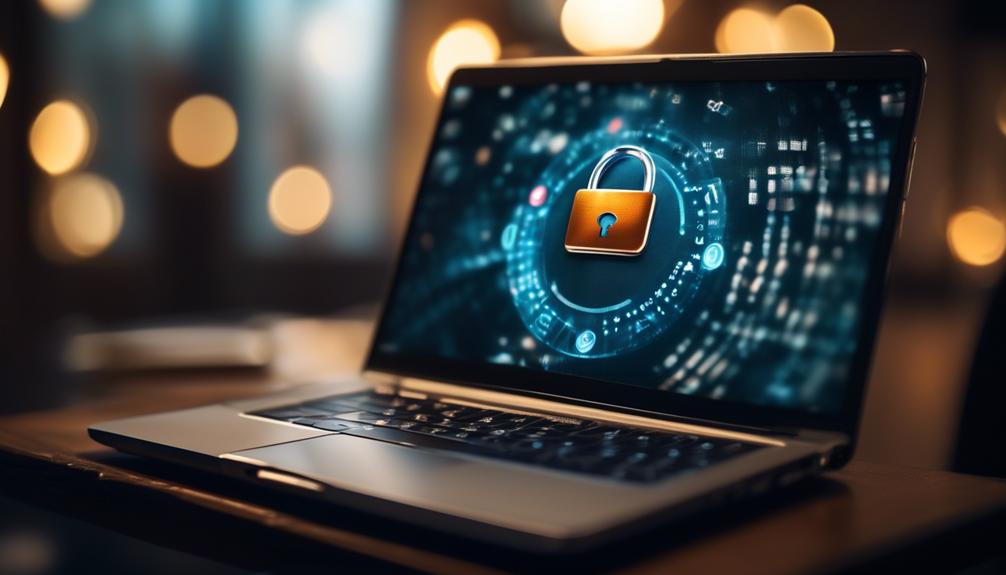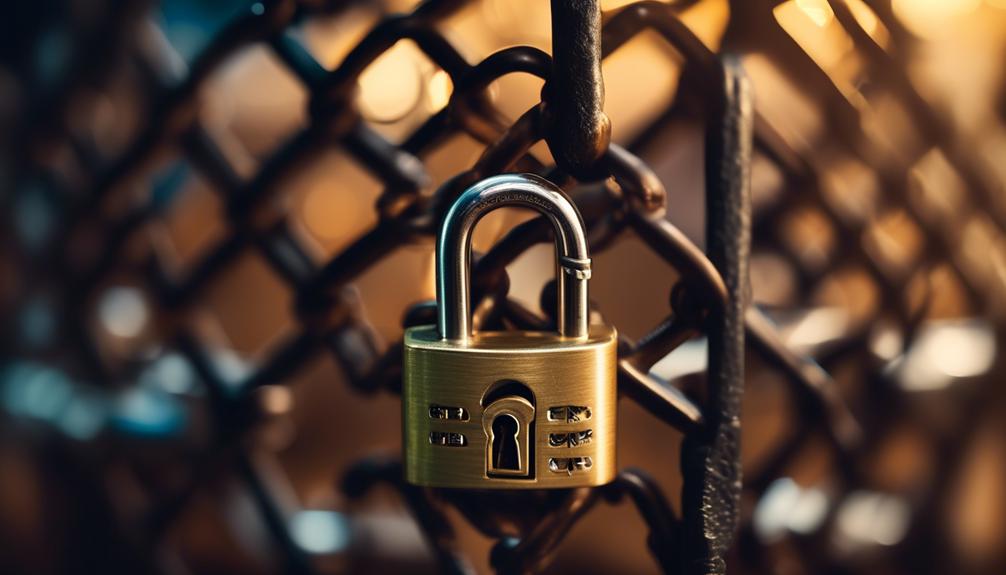9 Tips for Secure Web Browsing Abroad

In this era of *endless scrolling* and *digital nomadism*, jet-setting across the globe doesn't mean you have to disconnect from your online world. But hold your horses! Before you start posting those envy-inducing vacation pics or respond to work emails from a quaint café in Paris, let's chat about the darker side of the web—especially when you're away from the comfort of your home's Wi-Fi. It's a jungle out there, folks, and without the right gear, you might just run into some internet boogeymen.
So, how do you keep those cyber nasties at bay while sipping on a coconut under a palm tree? Fear not, dear traveler! We've got you covered with nine golden nuggets of wisdom to keep your digital life snug as a bug in a rug. And, because we're all about keeping things as breezy as your beach hair, we'll sprinkle in a dash of humor and *pizzazz* to keep things light.
Ever wonder if your phone catches a tan while you're out and about? Spoiler alert: it doesn't, but it can catch some nasty bugs if you're not careful. So, as you pack your sunscreen, don't forget to prep your digital buddy for some safe sunbathing in the cyber sun!
Ready to be the Indiana Jones of internet safety? Let's dive in and make sure your online adventures are smooth sailing—without any pirates on the horizon. And hey, if you've got any epic tales of digital derring-do or tips of your own, why not share them with the crew?
Use a Virtual Private Network (VPN)
Securing your internet browsing with a Virtual Private Network (VPN) is a smart choice, especially when you're traveling. A VPN safeguards your online activities by encrypting your data and routing it through a server located elsewhere. This encryption makes it tough for unwanted eyes to track what you're doing online. So, you can surf the web worry-free, confident that your privacy remains intact.
A VPN operates by concealing your IP address and substituting it with one from the server you're connected to. This not only keeps your online identity more anonymous but also lets you get around location-based content restrictions. Imagine wanting to watch a show that's only available in another country – a VPN can make that happen. It ensures everything you do online, from browsing to sending emails to making payments, stays private.
When picking a VPN service, choosing one that values your security and privacy is key. Opt for a VPN with robust encryption, a firm commitment to not keeping logs of your activity, and a variety of server locations. The speed and dependability of the VPN are also critical, as they affect how smoothly your internet will run.
"In a world where online privacy is constantly under threat, using a VPN is like having a personal bodyguard for your internet connection."
Update Your Devices and Software Regularly
Keeping your devices and software up-to-date is key to ensuring a secure and smooth online browsing experience. By staying current with updates, you're not just getting the newest features; you're also applying critical security patches and fixing bugs that could leave you vulnerable to cyberattacks.
Updates to your software are more than just cosmetic improvements; they address holes in security that hackers could exploit to gain unauthorized access to your devices or to steal your personal data. Staying updated is a proactive measure to safeguard your digital life.
Moreover, when surfing the web, it's wise to stick to secure connections. Opting for websites that use HTTPS means the data you send and receive is encrypted, making it much harder for anyone with malicious intent to eavesdrop on your activities.
By regularly refreshing your devices and software and choosing secure connections, you're taking straightforward yet powerful steps towards a more secure online journey. These practices are like locking your doors at night; they're basic but effective in protecting your digital home.
'Security is not just a feature, it's a necessity. In the fast-paced digital age, keeping your software and devices updated is the equivalent of staying one step ahead of potential threats,' as a cybersecurity expert might say.
Enable Two-Factor Authentication (2fa)

Two-Factor Authentication (2FA) is a vital step in securing your online presence. This method ensures an additional layer of safety for your online accounts by asking for two types of proof before granting access. This way, even if someone gets hold of your password, they won't be able to breach your account without the second form of verification.
A popular method of 2FA involves receiving a one-time password (OTP) on your mobile device. This method ensures that access to your account requires something you know (your password) and something you have (your phone to receive the OTP). Biometric verification is another robust form of 2FA, using your fingerprint or facial features to confirm your identity, offering a personalized security measure.
Incorporating password managers into your security strategy is also wise. These tools create and keep track of complex passwords for you, minimizing the risk of using the same password across multiple sites—a common vulnerability. Many password managers integrate 2FA, offering a secure environment to manage access credentials.
Adopting 2FA and employing password managers are critical steps in protecting your online accounts and personal data. These practices provide a higher level of security, allowing you to navigate the internet with more confidence and less worry.
Custom Quote: 'In a world where online security threats are constantly evolving, adopting Two-Factor Authentication is not just an option; it's a necessity for safeguarding our digital lives.'
Be Cautious When Connecting to Public Wi-Fi
To keep your online profiles and personal details safe, it's smart to be careful when using public Wi-Fi networks. Such networks can be hunting grounds for hackers looking to steal sensitive information like your passwords, credit card numbers, and other personal details. Hence, protecting yourself while on these networks is vital.
One key action is to steer clear of sending or accessing any private information over a public Wi-Fi connection. This means not logging into your bank or social media accounts, or shopping online in such situations. If you absolutely need to access these accounts, think about using a VPN (Virtual Private Network). A VPN works by encrypting your online activities, making it much harder for outsiders to intercept your data.
Also, keep an eye out for phony Wi-Fi networks. Cybercriminals craft these to deceive people into connecting, making it easier to steal their information. Always double-check the Wi-Fi network's name with the venue offering it before you connect. Plus, it's better to avoid any network that doesn't ask for a password due to their lack of security.
'Connecting to a public Wi-Fi without taking proper precautions is like leaving your house's front door open; you're inviting trouble.' This analogy underscores the importance of being vigilant to avoid unwittingly compromising your digital safety.
Use Strong and Unique Passwords

Creating strong and unique passwords is key to safeguarding your online presence and protecting your personal data from cyber threats. Implementing a few best practices in password management can significantly improve your account security.
Let's walk through three vital steps to boost your password protection:
- Password Managers: These tools are invaluable for keeping your passwords secure and organized. They create strong, unique passwords for each of your accounts so you don't have to memorize a long list of complex passwords. This not only simplifies your digital life but also greatly increases your accounts' security and lowers the chance of your passwords being compromised.
- Biometric Authentication: Adding a layer of security such as fingerprint or facial recognition to your accounts ensures that you and only you have access. This method is far more secure than traditional passwords because it utilizes your unique biological characteristics, which are incredibly difficult for someone else to replicate.
- Updating Passwords Regularly: Changing your passwords periodically is a simple yet effective way to keep potential intruders at bay. Make it a habit to update your passwords every few months or immediately after learning of a security breach on a service you use. This practice is a straightforward measure against unauthorized access to your accounts.
"To secure oneself in the vast expanse of the internet, adopting strong password practices is not just recommended, it's a necessity. It's akin to locking your doors in a bustling city." – Custom Quote
Disable Automatic Wi-Fi Connections
Improving your online security requires careful attention to the networks your devices connect to, particularly when you're on the move.
A key tactic for safeguarding your digital safety is to halt the automatic connection feature to Wi-Fi networks. This becomes even more vital during international travel, as open Wi-Fi hotspots are often not secure and present an increased risk of cyber threats. By turning off the auto-connect option, you prevent your gadget from linking to unfamiliar or unsafe networks inadvertently.
The danger of letting your device link automatically to Wi-Fi lies in the potential exposure to phishing schemes. Cybercriminals can easily set up deceptive Wi-Fi hotspots with names that appear genuine, like 'Free Airport Wi-Fi.' These traps are designed to lure in users, allowing attackers to monitor your online activity and steal personal information.
To sidestep such hazards, opt for connecting to Wi-Fi networks you know and trust. This proactive choice allows you to assess the network's safety before connecting, helping secure your data and privacy.
'Safety in connectivity begins with a choice – the choice to connect knowingly rather than automatically.' – by adopting a mindful approach to connecting to Wi-Fi networks, you play a critical role in protecting your online security.
Avoid Clicking on Suspicious Links or Downloading Unknown Files

Practicing careful online habits means avoiding clicking on suspicious links or downloading unknown files. This is key to keeping your personal data safe and securing your online presence.
Here are three crucial tips to consider for steering clear of these risky behaviors:
- Identifying phishing scams: Phishing is a tactic cybercriminals use to deceive people into giving away confidential information. Be wary of emails, messages, or pop-up advertisements requesting personal or financial information. Watch out for warning signs, such as spelling errors, odd sender addresses, or urgent demands. If you're ever uncertain, take the time to verify the source's authenticity before clicking any links or sharing any details.
- Informing others about online safety: It's beneficial to inform your loved ones and peers about the significance of not engaging with suspicious links and avoiding the download of unknown files. Encourage them to remain alert and share knowledge on how to spot phishing scams. Informing others helps create a more secure online community.
- Keeping up with online safety updates: Staying informed about the latest safety measures and tactics used by online criminals is vital. Regularly check for updates from trusted sources on how to safeguard yourself online and put their advice into action.
'An ounce of prevention is worth a pound of cure, especially in the digital age where your personal information is as valuable as gold.'
Use Encrypted Messaging Apps for Communication
To ensure your online chats remain private while traveling, opting for encrypted messaging apps is a wise choice. These apps add a secure layer to your conversations, making sure only the people you're talking to can see your messages. They work by encrypting your messages right from your phone and only decrypting them on the receiver's end. This means, should anyone intercept your messages, they'll be unable to read them.
Using encrypted messaging apps becomes critical when sharing personal or financial information. With these apps, you can communicate with ease, knowing your discussions are safe from unauthorized access.
Several well-known encrypted messaging apps like Signal, WhatsApp, and Telegram are available for use. They're not only straightforward but also come packed with features such as group messaging, voice calls, and the ability to share files. Always ensure you download these apps from reputable sources like official app stores to avoid harmful software.
'Privacy is not a luxury; it's a necessity,' as the saying goes. When it comes to safeguarding your private conversations, especially in unfamiliar territories, taking this extra step towards security can make a huge difference.
Backup Your Data Before Traveling

Before setting off on your journey, it's wise to secure your data to avoid the hassle and stress of potential loss. Ensuring your information remains safe and within reach can offer peace of mind throughout your travels. Here's how to effectively safeguard your files before you hit the road:
- Cloud Storage Services: Utilizing platforms such as Dropbox, Google Drive, or iCloud can be a smart move. These platforms allow you to upload your critical documents, cherished photos, and important videos, making them accessible from any device connected to the internet.
- External Hard Drives: Acquiring an external hard drive is a sound investment for an extra backup layer. Making regular copies of your files onto this drive ensures you have a tangible backup, which is particularly useful in situations where internet access might be spotty.
- Automatic Backup Settings: Activating automatic backups on your devices can keep your files constantly updated without manual effort. Various operating systems and cloud services offer this feature, allowing you to customize it to fit your needs perfectly.
'A journey is only as smooth as your preparation. Secure your digital memories and essentials, and you're not just traveling; you're moving forward with confidence.' – A reminder that preparation, including data backup, is key to a worry-free adventure.
Conclusion
Ensuring your online safety while traveling is key to keeping your personal details secure and avoiding cyber risks. Adopting recommended practices such as utilizing a VPN, keeping your devices up to date, activating two-factor authentication (2FA), and being cautious about using public Wi-Fi networks can greatly minimize the chances of unauthorized access and data breaches.
It's always better to preemptively protect yourself than to face regrets later, so adopting these safety measures for your internet use while on the move is wise. Think of these steps as your digital armor, providing robust protection for your virtual self.
'Traveling opens up new horizons but don't let it open up your digital life to threats. Secure your online presence as you would your passport – with utmost care and awareness.'